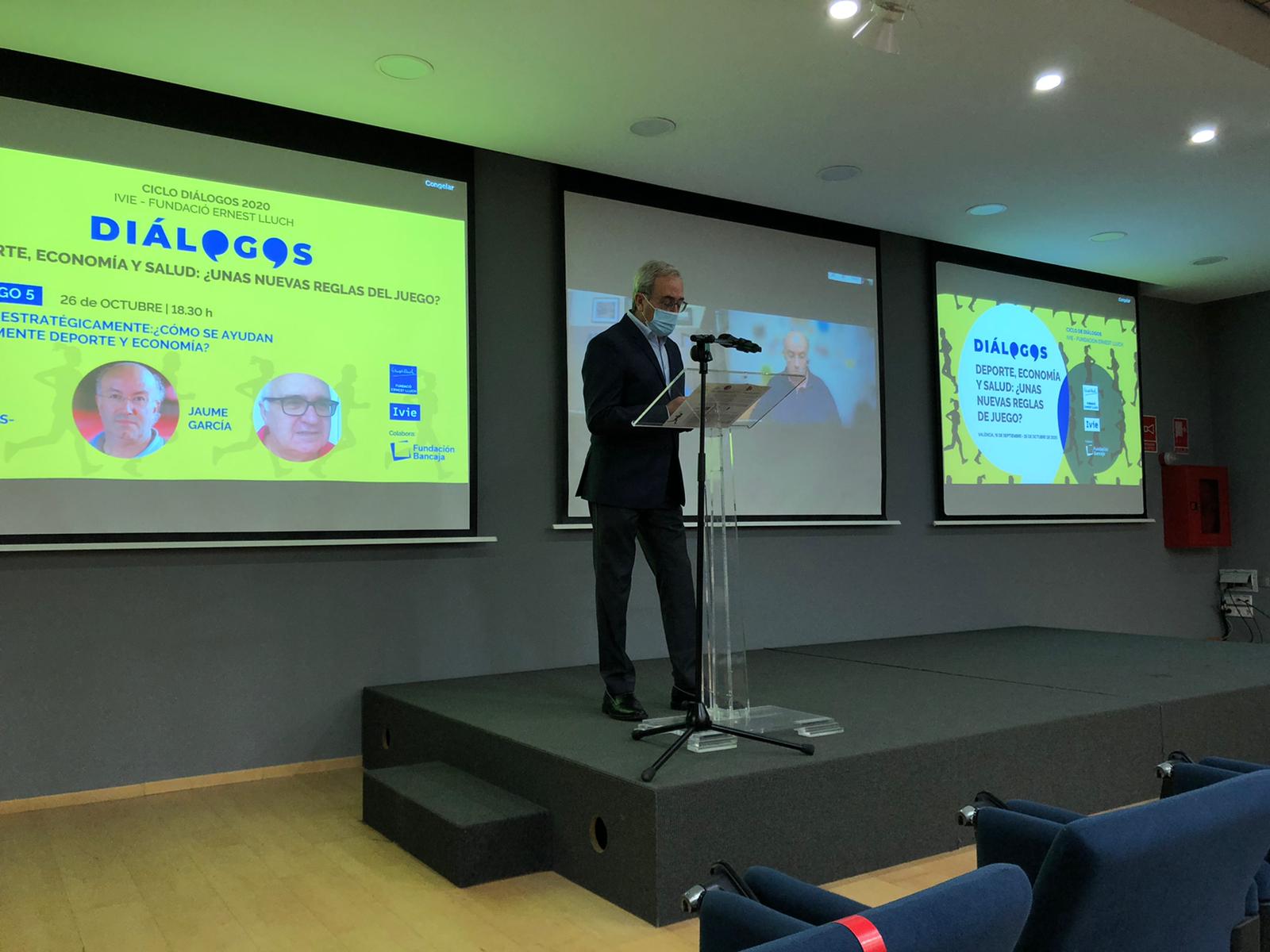Esta web utiliza cookies para que podamos ofrecerte la mejor experiencia de usuario posible. La información de las cookies se almacena en tu navegador y realiza funciones tales como reconocerte cuando vuelves a nuestra web o ayudar a nuestro equipo a comprender qué secciones de la web encuentras más interesantes y útiles.

Jaume Garcia: "Data analysis can help improve competitive balance in sports teams"
Professors Jaume Garcia and Ignacio Palacios-Huerta, both experts in sports economics, brought to a close the series on “Sports, Economy and Health: Changing the Rules of the Game” with a dialogue on how sports and economy can work favorably together
“The relationship between sports and the economy is peculiar, creative and beneficial to each other”. These were the words used by Jaume Garcia, Professor at the Universitat Pompeu Fabra, to begin the last of the five dialogues of the series “Sports, Economy and Health: Changing the Rules of the Game”, organized by the Ernest Lluch Foundation and the Ivie in Valencia, in collaboration with the Fundación Bancaja. Both Garcia and his debate partner, Ignacio Palacios-Huerta, Professor at the London School of Economics, agree that economic analysis can help in sports management, but in turn, sports, as well as the information and the activity it generates, can help the economy.
“Sports can offer excellent data to evaluate economic theories, just as apples helped inspire Newton to develop the law of gravity,” explained Palacios-Huerta. In fact, data analysis allows drawing conclusions that modify some strategies, thus improving the competitive balance of sports teams. However, both speakers warned of the risk of using too much Big Data or of offering what is purely descriptive information as analysis. In particular, the two professors spoke about the amount of information television and the media dedicate to soccer, which should not be mistaken for data analysis.
“Data or Big Data alone do not solve problems, they need to be analyzed in order to draw conclusions that will improve management and decision making,” Garcia added. Palacios-Huerta was also very critical in this regard, stating that there are companies that sell sports’ data as if it were analysis, when “adding and subtracting or Power Point presentations are not equivalent to a statistical analysis of the information”. To analyze data correctly, specific training is required, as can be seen with the Liverpool soccer club “which has a team of five experts, all with doctorates in astrophysics and/or mathematics, that carry out an excellent data analysis”.
The debate between Ignacio Palacios-Huerta and Jaume Garcia was the last of the series of dialogues organized by the Ernest Lluch Foundation and the Ivie. The final set of dialogues, which were carried out by a total of ten experts in sports economics, considered the relationship between sports, economics and health from different points of view. They provided data on the economic impact of sports’ events, as well as on the turnover of professional sports and the benefits of sports on health and employment. In addition, one of the dialogues focused on the analysis of technological challenges in the sports’ industry, before and after the COVID-19 pandemic.
The Regional Minister for Finance, Vicent Soler, offered the closing words of the final dialogue held in Valencia in which a limited number of people attended due to the health crisis. Consequently, the five dialogues were also broadcast live by streaming and are available for download: “Sports, Economy and Health: Changing the Rules of the Game”.


